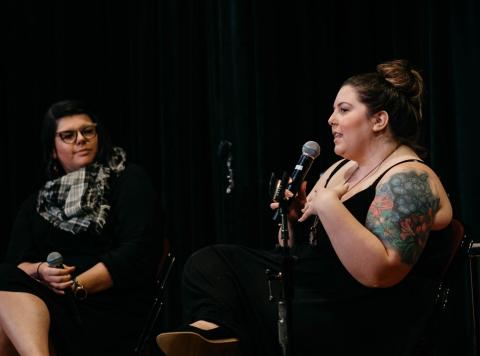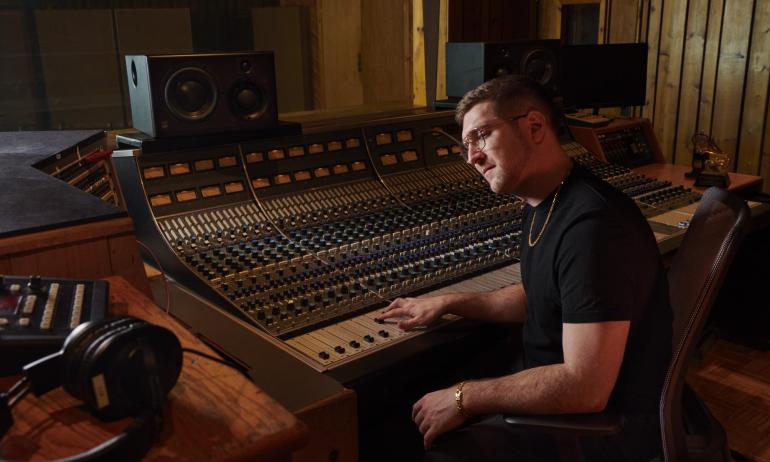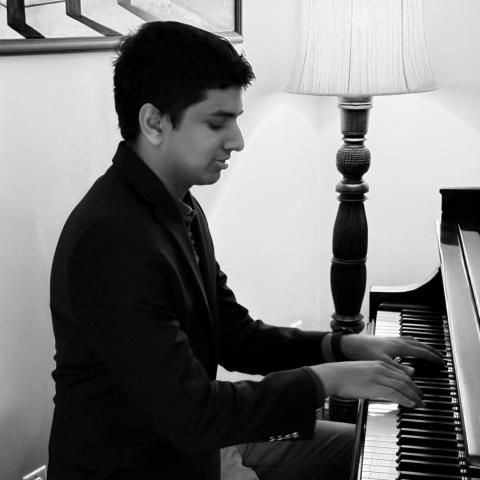Multiplatinum Artist Mary Lambert Chooses Balance over Superstardom

Mary Lambert (right) discusses mental health and career success with Leah Driscoll (left), director of Health and Wellness programs.
Image by Ben Pu
Singer-songwriter Mary Lambert first found the national spotlight in 2012 with the Macklemore & Ryan Lewis hit “Same Love,” which she cowrote and whose chorus she sings. In the years following that breakout moment, Lambert toured constantly, released her major-label debut album, sang a duet with Madonna at the Grammys, left her major label, released a book of poetry, and independently wrote and recorded her forthcoming second album, Grief Creature, out this November.
Throughout that journey, Lambert has spoken and made art that addresses openly and honestly her experiences with trauma and mental illness, and that celebrates queer identity and body positivity. She visited Berklee for a conversation with Leah Driscoll, director of Health and Wellness programs, as part of Berklee’s Reach Out Initiative, which invites prominent musicians to campus for conversations on mental health and wellness through its visiting artist clinic series.
During the wide-ranging conversation, Lambert talked about her beginnings as a singer-songwriter, including her first regular gig—a weekly, unpaid two-hour stint at a local Starbucks. She also spoke candidly about her decision to leave her major label and rethink her fixation with becoming “the gay Taylor Swift," choosing instead to pursue a healthier, more sustainable balance between her career and her personal wellbeing.
Lambert regularly returned to themes of service and the transformational power of art. “I create art to heal myself,” she said, “and I want my music and poems to be useful and to be of service…Speaking explicitly about my trauma, and speaking explicitly about having bipolar disorder, became as important as the music itself. Once I realized there was a certain kind of platform given to me, there was an opportunity to help.”
While she acknowledged that some might find her extreme openness off-putting, Lambert explained that, in her belief, “the sharing and the vulnerability I’ve expressed through my music affords me the ability to live a full, joyful life…You can’t have pure, blissful joy that’s sustainable without being in touch with your darkness."




